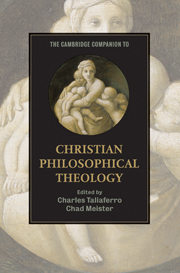6 - Eternity and providence
from Part I - God
Published online by Cambridge University Press: 28 May 2010
Summary
The doctrine of divine providence asserts that time is governed by eternity. This assertion provokes the two questions that will occupy us in this discussion: What is eternity? What is it for time to be governed by eternity? Eternity in this context is conceived as the mode of existence of the theistic God, a personal, active, and creative being capable of forming and executing intentions concerning the created world. There are, however, two quite different conceptions of eternity on offer. On one conception, that God is eternal means that God has always existed, with no beginning, and will always exist hereafter, with no end. Traditionally this has been termed “sempiternity”; in recent discussion, the preferred term has been “everlastingness.” This is the notion of eternity that by far predominates in ordinary religious discourse, and also in the Jewish and Christian Scriptures. It has, however, been a minority view in the history of theology, with preference rather for the claim that God is timeless, outside of time altogether. Since this is the view that has been dominant historically, and also the view that presents the greater conceptual and metaphysical challenges, I address it first.
- Type
- Chapter
- Information
- Publisher: Cambridge University PressPrint publication year: 2009
- 1
- Cited by



